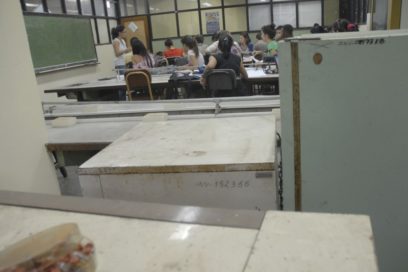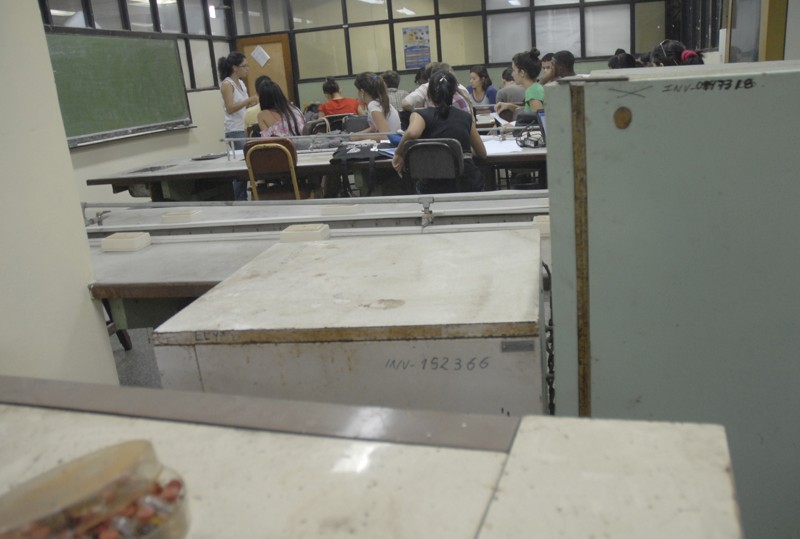When Beatriz Alvarez studied Microbiology Specialty at Biology Faculty in the University of Havana, the labs there were still working. At present, she is a teacher there and a decade after she graduated as obstetrician; she already has a PhD title.
However, yearning of those years had been left behind, as she told us in an interview to Trabajadores newspaper, as part of the activities against the blockade imposed by the United States (U.S.), against Cuba. Now many of those labs can just be used as classrooms.
“That affects teaching, mainly practical classes in Microbiology, so it is necessary the resources for training and prepare high qualified professionals.”
Nevertheless, the teaching staff does everything possible to teach and give the correct preparation to the students.
In Microbiology career, the students need to develop skills beyond the theoretical knowledge. This is a very expensive career that needs resources, among them, regents and equipments.
The University Gross
The testimony given above is just an example to illustrate the consequences of the blockade imposed by the US against Cuba since 1962. This genocide action affects Education.
Problems to have access to Internet and specialized literature, as well as consumables, means and instruments for teaching and research, said Manuel Febles, director of International Relations at the University of Havana.
The same happens in Geography, when it is impossible to have access to satellite images, because the main enterprises are Americans. The purchase of those necessary consumables is currently limited.
There are still problems to acquire positioning systems of global positioning (GPS) which is a lot used in investigations and also the access to informatics program systems of geographic information systems (SIG); more than the 90 percent of them are worldwide used in universities, enterprises and investigation centers. They are Americans and blockade clauses ban the selling of donation of them to Cuba.
Some foreign companies cannot sell Cuba directly due to the extraterritoriality of the blockade imposed to Cuba. So we have to purchase through third countries, and it is three times more expensive. Chemistry and Biology Faculties share this reality.
Besides all this, the University of Havana has about seven residencies to accommodate around 1,000 students and there are buildings with even 18 flats. There are 8 lifts but there are only three working now. There are no spare parts to repair them.
Special, Technical and Adults Education are the most affected
The blockade has impact in the finance, due to the purchase by third countries. If we could by the merchandise in the Caribbean, or on the south of the US, and mobilized them, the cost will be about 600,000 USD,” as it was commented by Dr. Lisandro Garcia, director of the Central Institute of Pedagogical Sciences (ICCP) from the Minister of Education.
Among the difficulties, he mentioned the finance difficulties because Cuba cannot make any operation with US dollars. We can neither have pedagogical exchanges between Cuba and the US. He also mentioned we cannot purchase materials for special schools like Braille machines, wheelchairs, and others. The same happens in technical schools with tools and other instruments.
Antonio Quevedo, an official from Adult Education said they have problems to purchase the necessary materials to give an adequate preparation to workers, farmers and housewives. He also gave the example of 40 language schools in Cuba that are affected because they cannot purchase the necessary labs for teaching.
Lisandro said he would like to talk to the President of the US and ask him to explain blind children in Cuba, why they cannot have access to all the means they need to learn.
“It is a contradiction of the country that is supposed to be the champion of the human rights. The blockade is an attack to development and the right to education. So we have to raise our voices to the public opinion.”




Who translated this?